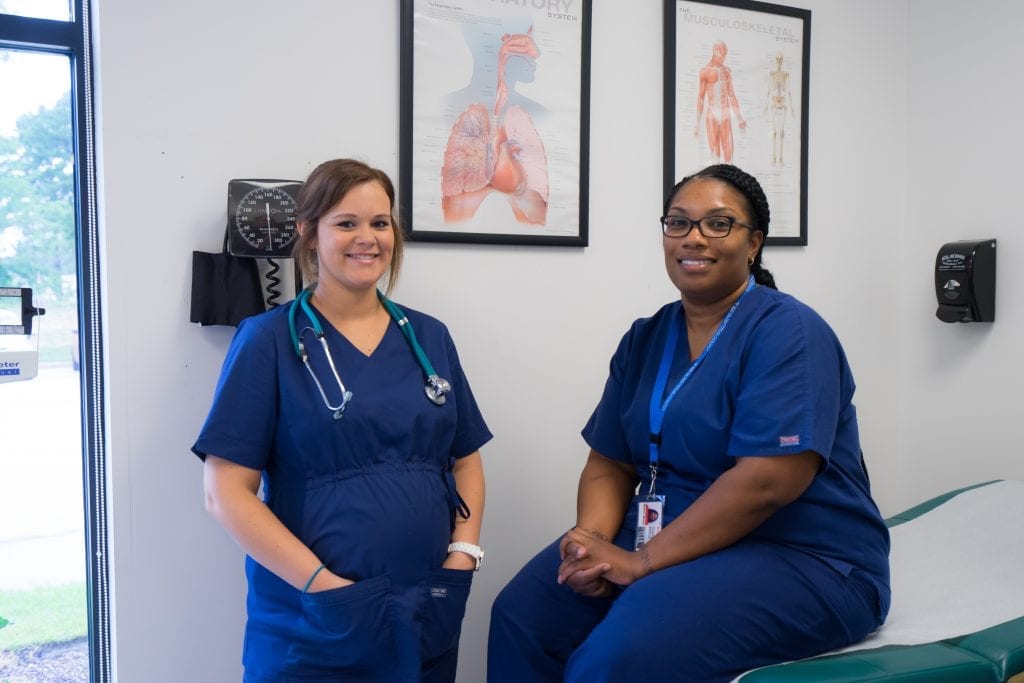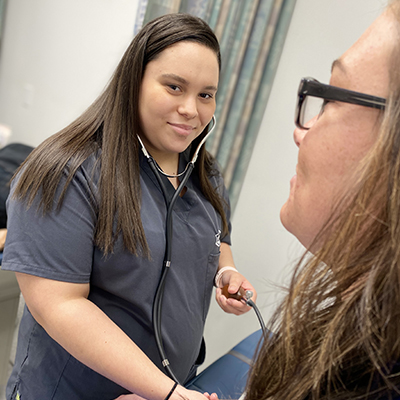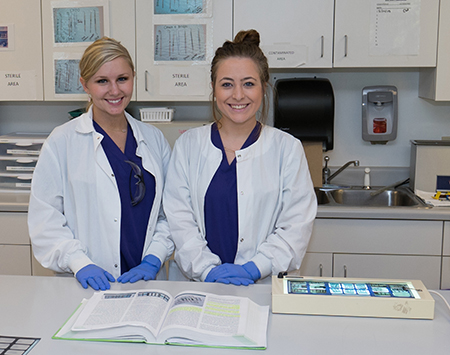Are you considering a career as a medical assistant?
This role is vital to the overall operations of a healthcare facility, handling administrative and clinical tasks to ensure the business runs smoothly and efficiently. Medical assistants are essential with a dynamic daily life that could include everything from greeting patients to assisting with procedures.
With a job outlook projected to grow 15% through 2033, a career as a medical assistant offers stability and strong demand. This article will give you a detailed look into the diverse responsibilities and duties you’d perform on the job as a medical assistant.
What is a Medical Assistant?
Medical assistants are vital members of healthcare teams, providing both clinical and administrative support to ensure smooth operations in medical offices and clinics. They’re often the first and last point of contact for patients during visits, providing valuable assistance to physicians. Medical assistants help improve patient care by performing tasks that include scheduling appointments, updating medical records, assisting with exams and performing basic lab tests.
Where Do Medical Assistants Work?
The majority of medical assistants work in outpatient healthcare settings, with physicians’ offices and medical clinics being the largest employers. However, medical assistants can also be found in a range of other facilities across the healthcare industry.
- 57% in physicians’ offices
- 17% in hospitals (state, local, and private)
- 10% in outpatient care centers, such as mental health and substance abuse treatment facilities
- 7% in the offices of other healthcare practitioners, including chiropractors, optometrists and therapists
This wide range of opportunities highlights the strong demand for medical assistants throughout the healthcare industry.
What Do Medical Assistants Do?
Medical assistants are trained in both administrative and clinical responsibilities, often working at front desks and exam areas. Because of this, they receive comprehensive cross-training that prepares them to support healthcare teams in a variety of ways. This skillset allows medical assistants to be a major part of improving patient care.
On the clinical side, medical assistants may assist with tasks such as:
- Drawing blood
- Preparing laboratory tests
- Sterilizing instruments
- Measuring vital signs
- Preparing patients for exams
- Providing first aid
- Assisting with surgical procedures
- Helping with medical scans
- Under the supervision of a physician, medical assistants may also prepare and administer medications
Administratively, medical assistants play a key role in the day-to-day operations of healthcare facilities. Their duties include:
- Scheduling appointments
- Managing insurance claims
- Handling billing and coding
- Maintaining accurate digital records
- Entering patient data
- Using various software programs
- Arranging lab services or hospital admissions
- Providing customer service
This combination of clinical and administrative responsibilities makes medical assistants a vital part of any healthcare team.
Interested in Learning More About Allied Health?
Fill out the form below to receive info about our career training programs.
What is the Medical Assistant Work Environment Like?
Medical assisting is a hands-on, stimulating career that often involves fast-paced, full-time schedules.
Medical assistants typically work in clean, well-lit medical facilities where they may spend their day moving between front-office administrative duties and back-office clinical tasks.
While their specific responsibilities can vary depending on the work environment and location, many medical assistants perform similar roles, balancing multiple tasks and interacting regularly with patients, doctors and other healthcare professionals.
The job can be physically active, requiring long periods of standing and the ability to multitask efficiently. Despite the demanding pace, it offers a rewarding opportunity to make a meaningful impact on patient care.
Depending on the employer, some medical assistants may also work evening or weekend shifts to support extended hours of healthcare services.
What’s it Like Working in the Medical Industry?
Working in the medical industry can offer stability, growth opportunities, and the chance to contribute to the meaningful cause of helping people maintain or improve their health.
If you enjoy a structured, people-focused environment, becoming a medical assistant is a great entry-point into healthcare.
With the right skills and experience, medical assistants can also pursue specialized roles or continue their education into other roles, such as nursing, medical office management or healthcare administration.
Start Your Path Towards Becoming a Medical Assistant
If you’re interested in learning more about becoming a medical assistant, request more information and a member of DTC’s team will reach out to discuss your career goals.
SOURCES
- https://www.bls.gov/ooh/healthcare/medical-assistants.htm#tab-6
- https://www.bls.gov/ooh/healthcare/medical-assistants.htm#tab-3
- https://my.clevelandclinic.org/health/articles/medical-assistant
- https://www.bls.gov/ooh/healthcare/medical-assistants.htm#tab-2
- https://www.bls.gov/ooh/healthcare/physicians-and-surgeons.htm#tab-4
- https://www.bls.gov/ooh/healthcare/medical-assistants.htm#tab-2



